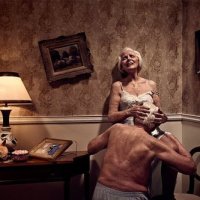
If you’re reading this, the chances are you’re subscribed or receiving this news via Twitter but just in case you’re a casual browser why not stay a while, subscribe or follow us and read up on LASS and HIV/STI updates. Here’s a brief roundup from last month’s posts
GOVERNMENT & UK
A House of Lords Select Committee published a damning report on HIV in the UK, warning that the current priority given to HIV and Aids treatment by policy makers is ‘woefully inadequate’, and revealing that over 100,000 people in the UK will be living with the disease by next year. The Lords Select Committee on HIV and Aids in the UK also warned that the total cost of treatment would soon top £1 billion per year, and called for all new patients at GPs’ surgeries to be tested for the illness on an opt-out basis.
The Government announced last month that the rules on gay men donating blood will change from a lifetime ban to a 12 month deferral period. This decision follows a review of the current policies around exclusion and deferral from blood donation by the Advisory Committee on the Safety of Blood, Tissues and Organs (SaBTO).
Employing sport to communicate HIV messages isn’t new, but one initiative aims to go further – imparting skills for planning, evaluating and funding a football-based HIV campaign
 SCIENCE
SCIENCE
Scientists in the US have developed a strain of green-glowing cats with cells that resist infection from a virus that causes feline AIDS, a finding that may help prevent the disease in cats and advance AIDS research in people.
Raising the CD4 cell threshold for the initiation of antiretroviral therapy to 500 cells/mm3 would mean that almost 50% of patients would need to start HIV treatment within a year of their infection with HIV, investigators from an international study of seroconverters report in the October 15th edition of Clinical Infectious Diseases.
Scientists spent a decade trying—and failing—to map the structure of an enzyme that could help solve a crucial part of the AIDS puzzle. It took online gamers all of three weeks.
Spanish researchers have completed the first human trial of a new vaccine against HIV. It has been successful in 90% of the HIV-free volunteers during phase I testing. This vaccine brings great hope to eradicate HIV forever.
 INTERNATIONAL
INTERNATIONAL
The Zimbabwe government says it is considering drastic measures of door-to-door HIV testing campaigns for every citizen in the country in a move to try and eliminate new HIV infections.
Linkage to facility-based HIV care from a mobile testing unit is feasible, South African researchers report in the advance online edition of the Journal of Acquired Immune Deficiency Syndromes. In a stratified random sample of 192 newly diagnosed individuals who had received CD4 test results, linkage to care was best among those who were ART eligible, Darshini Govindasamy and colleagues found.
The David Kato Vision & Voice Award will be presented annually, on Human Rights Day (10th December), to an individual who demonstrates courage and outstanding leadership in advocating for the sexual rights of lesbian, gay, bisexual, transgender and intersex (LGBTI) people, particuarly in enviroments where these uinduvidual face continued rejection, marginalization, isolation and persecution. David Kato, the advocacy officer for Sexual Minorities Uganda was one of Uganda’s most prominent gay rights activists until January, when he was murdered in his home weeks after winning a court victory over a tabloid that called for homosexuals to be killed. Read more about it here.
 LOCAL
LOCAL
Each month, a registered dietician from the NHS, visits LASS to offer helpful advice and information on food nutrition and healthy eating for people who live with HIV. Our next session “The Truth About Fats” will be on Friday, 16th September 2011 from 12:00pm. This is an opportunity to ask questions and speak with the dietitian directly about any concerns you may have.
Well done to TRADE Sexual Health after a very successful Gay Pride. This year’s Leicester Gay Pride saw Trade Sexual Health join forces yet again with the Leicester GUM Clinic to present the Health & Wellbeing Marquee 2011!
- Excellent strategy, well communicated.
- Excellent and trusted leadership.
- Excellent coaching and mentoring across the organisation.
These are just three of the positive statements used to describe Leicestershire AIDS Support Services by Investors in People after our recent assessment. We are proud to announce that we are now officially recognised as an investor in people organisation.
Related articles
- David Kato: Gay Rights Activist, his Murder and the Vision & Voice Award (lass.org.uk)
- Lords Warn About “Woefully Inadequate Government Policies On HIV/AIDS (lass.org.uk)
- Mobile Testing Units Show Success in Linking People to HIV Care (lass.org.uk)
- This 90 Percent Successful Vaccine May Be Our Best Chance to Eradicate HIV/AIDS (lass.org.uk)
- Door-To-Door Compulsory HIV Testing on the Table (lass.org.uk)




